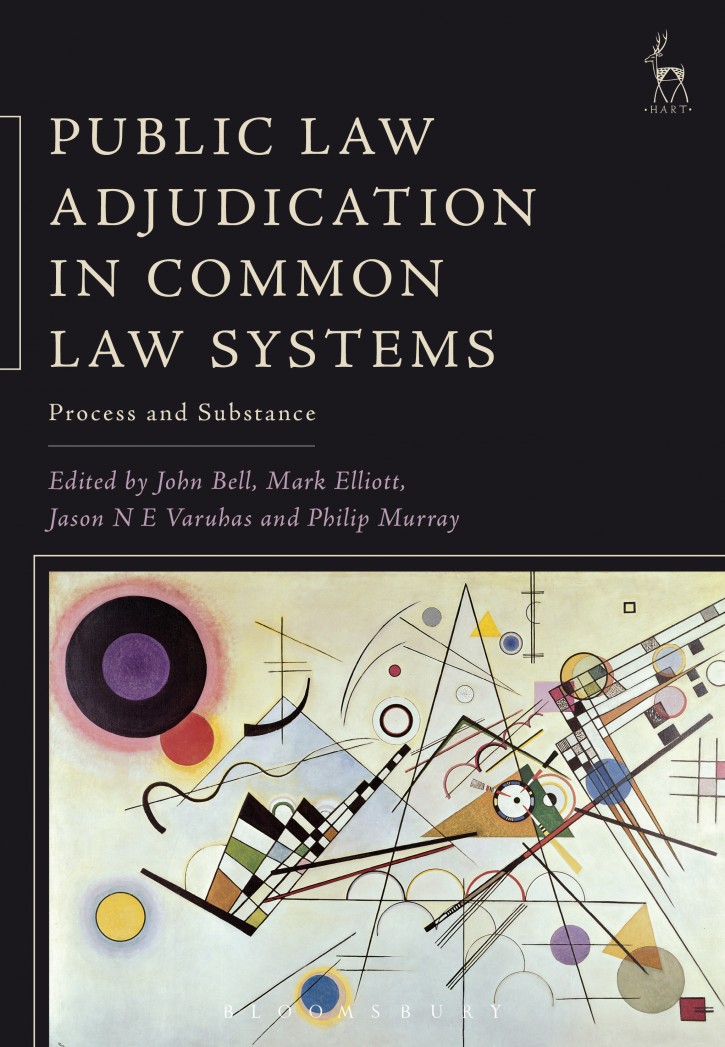Public law theory

Reprendre le contrôle : ironies et ennuis
Ce texte est basé sur le discours-programme d’une conférence tenue à l’Université de Montréal le 29 mars 2018 à l’occasion du premier anniversaire de la notification par le gouvernement britannique de son intention de quitter l’Union européenne en vertu de l’article 50 TUE. Prenant pour thème l’idée que la Grande-Bretagne «reprend le contrôle», j’identifie plusieurs […] Read more
Administrative Law: Characteristics, Legitimacy, Unity
Over the last half century, courts around the common law world have transformed the principles of judicial review of administrative action. Administrative law’s scope and depth have increased dramatically. Increasingly intrusive grounds of review – including for factual error and, in some jurisdictions, breach of substantive legitimate expectations – are available against a wide variety […] Read more
Best Practices in Administrative Decision-Making: Viewing the Copyright Board of Canada in a Comparative Light
This report focuses on the decision-making process used by the Copyright Board of Canada for tariff setting. Previous reports have identified delays in tariff setting as a problem to be resolved. Drawing on the decision-making processes of comparable federal administrative tribunals and recent civil justice reforms in Canada, this report makes several recommendations as to […] Read more

Administrative Law: a Values-Based Approach
I focus in this essay on judicial review of administrative action, looking at the subject “from the inside, trying to make sense of lawyers’ reasons and arguments as they are actually presented and defended”. Rather than starting from the constitutional basis of judicial review and working backwards to practice, I start by identifying the core […] Read more
Delegation, Drugs and Republicanism: Bederev v. Ireland, [2015] IECA 38
Ireland now has a Court of Appeal. If some of its citizens were unaware of its existence, the buzz that followed Bederev v. Ireland, [2015] IECA 38 put paid to any lack of public awareness. In a set of reasons by Hogan J., the Court held that s. 2(2) of the Misuse of Drugs Act […] Read more
Soft Law and Religious Freedom: Ishaq v. Minister of Citizenship and Immigration, 2015 FC 156
Ishaq v. Minister of CItizenship and Immigration, 2015 FC 156 has received enormous media attention. The case touches on whether the government can require an applicant for Canadian citizenship to take off her niqab before she takes the oath of allegiance. Moreover, having lost at first instance, the federal government was very loud in announcing […] Read more
Considering Charter Values: Iacovelli v. College of Nurses of Ontario, 2014 ONSC 7267
As is well-known, the Supreme Court of Canada stated in Doré v. Barreau du Québec, [2012] 1 SCR 395 that administrative decision-makers must consider Charter values in the exercise of discretionary powers. However, this duty has recently been cast in very limited terms by a strong bench of Ontario’s Divisional Court in Iacovelli v. College […] Read more
The Struggle for Deference in Canada
In the common law tradition, courts are at the apex of the interpretive hierarchy. Traditionally, their role has been to answer legal questions authoritatively. A deferential approach to judicial review requires judges, however, to be satisfied by an answer that is merely reasonable, even on questions of law. This requires common law judges to pull […] Read more
L’abolition du registre des armes d’épaule : le rôle potentiel des principes non écrits
French Abstract: L’appel devant la Cour suprême dans l’affaire Canada (Procureur général) c. Québec (Procureur général), soulève une question d’interprétation constitutionnelle : est-ce que sa compétence en matière de droit criminel permet au Parlement d’abroger une loi et d’un seul coup détruire unilatéralement toutes les données recueillies sous l’égide de cette même loi? Notamment, cette question […] Read more
Court Fees, Constitutional Rights and the Common Law
In a remarkable decision yesterday, the Supreme Court of Canada struck down British Columbia’s regime of court fees as unconstitutional: Trial Lawyers Association of British Columbia v. British Columbia (Attorney General), 2014 SCC 59. A litigant was faced with a $3,600 bill for scheduling a 10-day trial. She could not pay the court fees — […] Read more